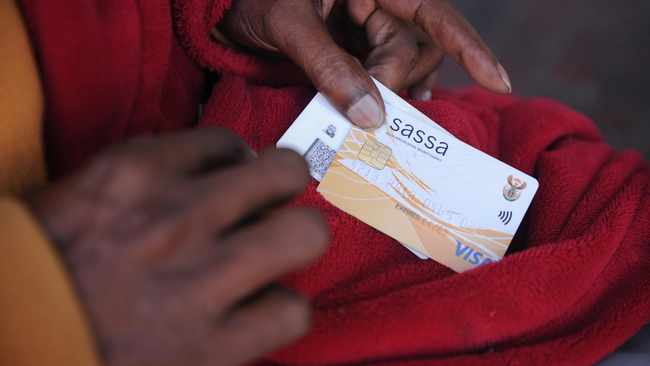Kids’s Institute urges govt to rethink under inflation enhance for youngster assist grants
Johannesburg – In South Africa’s back to commemorate Sunday Child Protection Week, the UCT-based Children’s Institute has criticized the government’s inability to “protect children during Covid-19 and beyond” and urged it to reconsider hike inflation on child subsidies.
Researchers said the past year marked by the Covid-19 pandemic and lockdowns – including prolonged school closings – was special for parents and caregivers who need to protect and stimulate their children in unusually difficult circumstances, including long periods of time been challenging when schools were closed.
“President Cyril Ramaphosa has made repeated promises to tackle violence against women and children, and recently stressed that child nutrition is central to national plans to rebuild the economy.
“After a year in which millions of households had plunged into desperate poverty and children suffered from the consequences of food insecurity, the shocking decision was made to limit the Child Support Grant (CSG) increase to just R10.
“However, the government has provided social grants for budget cuts, allowing them to lag behind food price inflation.
“The early childhood development services have also fallen victim to budget cuts and incredibly strict registration requirements, and many have had to close completely. These critical support systems that help troubled families and vulnerable children have been eroded, ”said the Children’s Institute.
The pandemic had lost thousands of jobs, leading to fewer household entries and food insecurity in the country.
“Aside from the risk of the virus itself, the lockdown has trapped many households in overcrowded and cramped conditions, further compromising physical and mental health and putting children and their carers at risk.
“In addition, reducing the value of the child benefit allowance in relation to the food poverty line increases the stress and anxiety of carers and is likely to lead to more physical and emotional violence and mental health problems.
“Restricted access to early childhood development services increases the burden on women of care and deprives parents of access to violence prevention programs – a key component in breaking the ongoing cycle of violence at home,” said the Children’s Institute.
Citing the Birth to Twenty Plus (Bt20 +) study, which provided insight into violence in children’s lives over a period of more than 20 years, the researchers found that 99% of children in this birth cohort experienced some form of violence and that nearly half of preschoolers are reported to have experienced corporal punishment by parents or carers and that corporal punishment is widely used as a discipline method.
One of the authors, Professor Shanaaz Mathews, said this was worrying: “Infanticide (the killing of a newborn baby) is becoming a hidden problem through data collected through the Child Death Review project, indicating the urgent need to pregnant women as part of our violence prevention response. “
The researchers also found that 45% of child killings were neglect-related, while three-quarters of child abuse deaths occurred in the under-five age group and took place at home.
Lizette Berry, a senior researcher at the Children’s Institute, said, “Prolonged violence is particularly harmful during the first thousand days of life,” she said.
“The effects of excessive physical and psychological stress or trauma, also known as toxic stress, can disrupt the development of brain architecture, which can have lifelong consequences.”
The researchers also said that parental intervention has the potential to disrupt cycles of violence, thus minimizing the risk for young children and their caregivers.
Another senior researcher at the Children’s Institute, Dr. Katharine Hall said Scopa in parliament last week about the impact of the rise in inflation below the inflation rate for child support.
“The child benefit subsidy was already below the food poverty line – it could not feed a child adequately.
“Still, this is the smallest increase that the child benefit subsidy has received in the last six years (since 2015).
“In relative terms, this is the first time since its introduction that the value of the child benefit subsidy has fallen in relation to food price inflation.” With the grant, even less food will be bought this year than last year. “
The Children’s Institute and the Center for Child Law asked parliament to review the grants and reminded the Appropriations Committee of the High Court’s ruling that “even in times of economic crisis, regressive measures should only be considered if all other options are available Checked and ensured that “Children are the last to be affected, especially those in vulnerable situations.”
IOL


Comments are closed.